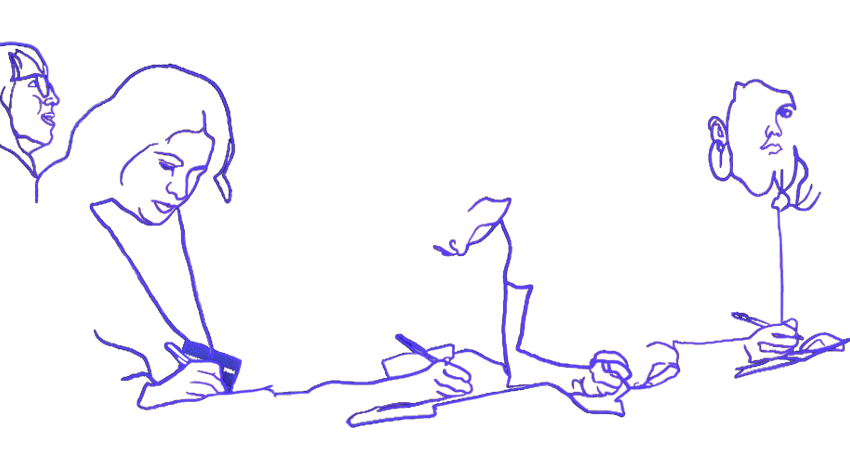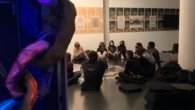
Can we build, as a sector, a professional system?
An article fromErik Forsberg and Alba Saura-Clares
of The stage platform
It Creation Support System in the Performing Arts of Catalonia Ensures Professionalization? Offers the Tools needed for artists to develop their projects in decent and sustainable condition? What factors generate that is not effective? Faced what problems is the current system? What can we do to change it?
These questions synthesize the concerns that led us to publish in November 2024 the report Towards artistic professionalization: tensions and challenges of support programs for the creation of Cataloniaand that was at the same time Motor of the 2024 Success Conference of the Ivanow Ship. This meeting involves, in its regular realization, a Space of revitalization and joint reflection From the hot debates in the performing arts sector in Catalonia and in their dialogue with other theatrical contexts. Is also a Space that seeks to constitute itself as an effective and committed tool of workwhere the different voices in the sector and where they are reached conclusions that impact and generate positive changes For the performing arts.

In our research, We map the system of support for the creation of Catalonia and analyze, together with its achievements and imprint, its tensions, challenges and problems. Through thirty interviews with cultural agents, public administrations and artists, we were able to see that we were treating A central question that was generally perceived the crisis of the current system and a need for change. However, the difficulty lies in finding the reasons and responses to this crisis: what their problems and their achievements are, in what area their shortcomings correspond, how the different groups involved and what are the tools and their application in the short, medium and long term. In the face of this context, it is required Work from a collective debate, transferring private questionings and proposals towards joint measures that have a real impact.
During the successful days the overall perception that eThe current system of creation support calls has a limited capacity to influence the professionalization of artists. This question implies, in short, the central question of these days, with which the work dynamics began. A question that can only generate response difficulties to a sector marked by precariousness: “What defines an artist in performing arts as a professional?”
As observed in success, the approach for artists and agents was complementary, but different, responding to the same difficulty as their enunciation. As Albert Reverendo, in the textual storytelling, says in the textual relate,For artists, professionalism is mainly associated with creative freedom and self -definition, while for agents it is more linked to the ability to be part of a structural system that makes creation sustainable“. Thus, a definition is offered that synthesizes the most shared points in the reflections generated in success:
“An professional artist of Performing Arts:
* works in a way paid and in a legal framework,
* can dedicate the time to creation,
* has access to Management, production and exhibition structures,
* their jobs are related to the sector,
* sets Links and collaborations in the sector,
* has a Training and/or artistic and technical experience“.

This definition is a Direct invitation to work, from it, in significant changes. The truth is that the professional development by the artists is not guaranteed by the current system of support for creation; It even generates difficulties to define what it means to be a professional in the stage sector. It is abouta system that promotes “over -pawing” and overexploitationthrough a Mechanism of public calls overflowing, but insufficient in their contributions for creation and production. At the same time, this is a System exhausted by overproductionsince it only conceives help from specific projects, whose route is limited, without achieving optimum distribution.
While it might seem that there is an interest in supporting experimentation processes, the reality is that these spaces are also accelerated with production. The artists are overwhelmed and tired, frustrated by the calls, but also the agents. The financial contribution is as small at times for the artists, as in many cases it is a great effort for agents. If the enormous number of calls to which an artist must submit (seeking to add the least time of rehearsal and remuneration for his project) is not assumed, it is not the huge number of various applications that each agent arrives in his calls, especially those of greater impact.
The wide response from the two days of the successful days, with more than one hundred people registered, evidenced this widespread perception of a context in crisis that must be responded collectively. In the graphic account of the encounter, developed by Verónica Navas, this amplitude of participants who want to work as a whole is perceived. This is where the graph shows unfinished strokes, cuts of moments, ideas that were flowing and that they must continue to push and concretize, but which have begun their journey. In turn, the actual letter of the participants in the work tables allows us to find key ideas that resonate as challenges of the current creation support system: “value” and “evaluate” from “co -responsibility”; “Decreased demands”, “cover needs vs. accompany”; “Artist link + Entity + State”; “Research and revolt”; “Distribution”; “Mediation with meaning for the artist and the community”; “Lack of cultural policy”, “professionalization”, etc.
The collages, as well as the photographs taken by Tristán Pérez Martín, allow to visualize the variety of actions of the encounter: various dynamics and working strategies that led to the detailed reflection – individual and group – in a relaxed talk as a mechanism to leave innovative ideas, rupturists with the existing structures. In turn, it was sought to constitute a horizontal space where administrations, cultural agents and artists shared the same opportunities for debate.

What is then after success? Many questions, of course, but also determining conclusions, tangible needs, first proposals for change and unreasonable claims:
1_Generar More duration support programs;
2_Re -evaluate the needs of the artists in the programs to accompany their professionalization;
3_Improve residence networks and programs between agents involved of different typesthus reducing the burden of calls;
4_Unify criteria and foster a Set -to -call system;
5_Plant measures in the face of intersectional challenges May the pass through thePre -Evaluation of the calls or the Active participation of Infrared Communities voices in the selection groups;
6_Evaluate the legal framework in which artists participate in creation support programswith actions such as direct recruitment or flexibility before its forms and needs, ensuring a renewal of the artist’s statute for the improvement of labor rights …
These are some of the first ideas that are jointly determined and that share a goal: Promote a new paradigm that ensures the sustainability of the sector and faces precariousness. Change actions will only be specific patches if they are not set as a whole, as a sector, analyzing their meaning and functionality.
Thus, the great challenge ahead is obvious: Are we able to start working, as a sector, with all the parties involved, to evaluate, build, dialogue needs and promote another system? Because the truth is that We cannot continue to maintain a system that secular as much as precarious to creation; is precise, imminently, Thinking change strategies where the focus is in artistic professionalization.
* The Wednesday, June 18, 2025at the 12:30 pm, We present the conclusions of the 2024 Success Conference on the Ivanow Nauby the hand of the stage platform. You can find all the information on how to participate here.

Erik Forsberg (stage creator and producer) and Alba Saura-Clares (playwright, producer and theater researcher), are part of The stage platforma collective of cultural management specialized in artistic accompaniment, activation of audiences, territorial mediation and research in performing arts. Among their projects, they have developed the report “Towards artistic professionalization: report on the tensions and challenges of the programs of support for the creation in the performing arts in Catalonia” and have been organizing the festival participated by young people in the Alt Maestrat annually from 2023.






